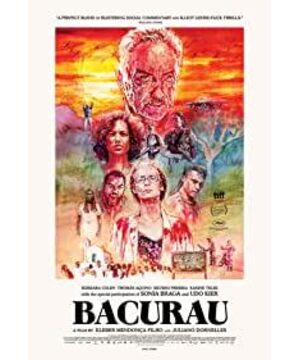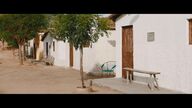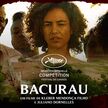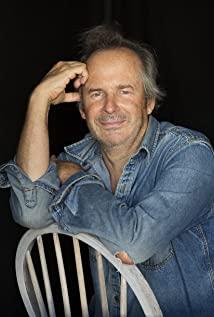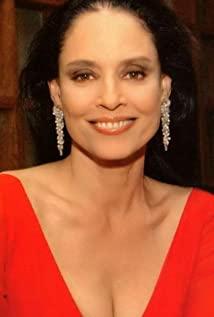The returning home heroine came under the big tree at the entrance of the village, and the uncle under the tree told her to open her mouth. She opened it without hesitation, and then there was an abrupt close-up: the uncle put a fruit in her opened mouth. Then the camera returned to the normal narrative scene.
In the first half of the film, the funeral of the matriarch: a heart-warming folklore display. The reason for the shock, of course, is because it is unfamiliar; but more importantly, it is on the ground. When we say "show", it is not the ethnography to know and understand, but the display of the owner to the others; the former discusses disenchantment, while the latter is witchcraft itself (sortilège): this is also the essence. The theme of the film, the home guard full of pride, this is the most important manifestation of a certain land complex topophilia. In the first half of the heroine, she is an outsider returning home, so the audience's psychology is close to her; therefore, when the funeral reaches its climax, the audience and her are involved in witchcraft. It's not surprising at all. When the singing was silent, people put down their white handkerchiefs, everyone was looking at the old grandmother's coffin, and the camera gave her a close-up of her face:
This is a rather typographical shot, with a close-up of the person’s face, but she looks at a certain position in front of the camera, frowning her eyebrows, and she is out of mind—the audience has long been familiar with such moments—this is Proust At the moment when her involuntary memory appeared, a scene that surprised her became the Madeleine cake that triggered her memory. The matriarch's closed coffin is full of surreal power, attracting her eyes and thoughts. We know that she will remember something in the next moment.
Sure enough, the next flashback appeared. (The reason why we call it flashback is because the next shot is embedded in a kind of flashback sentence, as if it were what she recalled.) This shot is the previous fleeting moment. A close-up of a fruit: a fruit is placed in the mouth.
However, at this moment, we suddenly discovered the paradox: the image presented by this lens cannot constitute a "memory". Of course, she can "remember" this moment, or another nearby moment-the taste of the fruit between the cheeks (which may be more reasonable). But the image we are witnessing at this moment is that there is no uncle, no uncle’s hand to hold the fruit, and no tree above her head. It is a close-up close-up. Carefully observe that the fruit is placed on the tip of her tongue, but there is no " Viewpoint"; and because it is too close and appropriate, we immediately perceive its "non-human" materiality. What her "recollection" triggered was not a flashback that belonged to her, but the replay of a piece of material image material on its own; and because of her "recollection", it had an ambiguous connection with the subject's memory, which became The subject's transcendent external memory. (Even, since this shot is a repetition and playback of the previous abrupt shot, we can assume that this is the camera recalling. The subject suddenly abdicated, and the camera’s memory comes to the present.) The moment of being involved in witchcraft: the fruit The moment of the entrance fell on her. (The structure of the memory is broken.) Later we also saw this image reappearing, which gave the villagers of Bakrau a certain guardian power.
This is why we say that these new surrealist land-loving movies are no longer about "dreams." In Freud's psychoanalytic theory of being flattened and reduced to some exquisite and evil artifact, dream-reality and unconscious-consciousness symbolize the world at different levels. The dream is in the depths of the real world, in its basement. To come to the dream, we need to fall into sleep. But now the situation is quite the opposite: the subject is no longer groggy, hard to discern the truth of the dream, she opens her eyes wide, frowns her eyebrows, and at the moment when her knowledge of the material world reaches its peak - she raises her foot and walks directly into this wei The wonderland of materialism! Clear water gushed from the matriarch's coffin.
This set of shots may be the epitome of this film: in the typified framework, externalities constantly overflow. Although it may only be a personal feeling, in my opinion, Bakrow has shown the power of the image of love to a certain extent-the political nature rarely weakens the experience of the image too much. When we see it appearing as a kind of political essay, it rebelled against the author’s intention, cleansed the political nature of its image meaning structure, suspended it aside, and transformed it from “ideology”. Responding to a certain distance, and evolving into a more optimized, more immersive (more pure image) political narrative. This is surprising.
View more about Bacurau reviews


